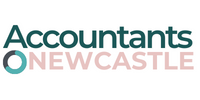Healthcare sector accounting is a critical aspect of managing the financial operations of healthcare organisations. From financial management and planning to compliance with regulations, accurate reporting of financial performance, and budgeting, healthcare sector accounting plays a crucial role in the success of healthcare institutions. This article will explore the key principles of healthcare sector accounting, its challenges, and how it can be improved. We will also address frequently asked questions about healthcare sector accounting, providing valuable insights into this important field. Whether you’re a healthcare professional or simply interested in the financial aspect of the healthcare industry, this article will offer valuable information and insights.
What Is Healthcare Sector Accounting?
Healthcare sector accounting involves the specialised financial management and reporting practices within medical and healthcare organisations, ensuring the accurate tracking and allocation of financial resources to support the delivery of quality healthcare services.
Financial management in the healthcare sector encompasses various unique elements, such as carefully monitoring medical supplies, personnel, and facility maintenance expenditures. It involves complying with industry-specific regulations and reporting requirements, including maintaining proper records for audits and financial reviews.
Accurate financial tracking is crucial for healthcare institutions in ensuring optimal resource allocation, essential for providing high-quality patient care while maintaining sustainable operations. This involves meticulously managing budgets, cost controls, and revenue cycle reporting. Effective financial management in healthcare is vital for maintaining the trust and confidence of stakeholders, including patients, donors, and regulatory authorities.Healthcare sector accounting is a critical aspect of managing the financial operations of healthcare organisations. From financial management and planning to compliance with regulations, accurate reporting of financial performance, and budgeting, healthcare sector accounting plays a crucial role in the success of healthcare institutions. This article will explore the key principles of healthcare sector accounting, its challenges, and how it can be improved. We will also address frequently asked questions about healthcare sector accounting, providing valuable insights into this important field. Whether you’re a healthcare professional or simply interested in the financial aspect of the healthcare industry, this article will offer valuable information and insights.
What Is Healthcare Sector Accounting?
Healthcare sector accounting involves the specialised financial management and reporting practices within medical and healthcare organisations, ensuring the accurate tracking and allocation of financial resources to support the delivery of quality healthcare services.
Financial management in the healthcare sector encompasses various unique elements, such as carefully monitoring medical supplies, personnel, and facility maintenance expenditures. It involves complying with industry-specific regulations and reporting requirements, including maintaining proper records for audits and financial reviews.
Accurate financial tracking is crucial for healthcare institutions in ensuring optimal resource allocation, essential for providing high-quality patient care while maintaining sustainable operations. This involves meticulously managing budgets, cost controls, and revenue cycle reporting. Effective financial management in healthcare is vital for maintaining the trust and confidence of stakeholders, including patients, donors, and regulatory authorities.
Why Is Healthcare Sector Accounting Important?
Healthcare sector accounting holds immense importance for ensuring medical institutions’ financial integrity and transparency, meeting the regulatory standards set by insurance companies, and implementing best practices within the industry.
Proper accounting in the healthcare sector is essential to effectively manage the diverse financial transactions, including billing, reimbursements, and expenses. It directly impacts the ability of healthcare providers to forecast and manage their finances, ensuring that they can consistently provide quality care to patients.
Compliance with insurance company standards is crucial to secure timely and accurate reimbursements for services rendered. Adherence to industry best practices facilitates efficient operational management and helps maintain healthcare organisations’ overall financial health.
Financial Management and Planning
Effective financial management and planning are fundamental aspects of healthcare sector accounting, ensuring the prudent allocation of resources and the long-term sustainability of medical institutions.
Financial stewardship in the healthcare sector involves proactive budgeting and investment decisions that align with the organisation’s strategic goals.
By integrating cost-effective measures and monitoring operational efficiency, healthcare institutions can maintain a stable financial status and give them the power to provide quality care and services.
Effective financial planning allows for identifying potential financial risks and opportunities, facilitating knowledge-based decision-making and continuous improvement.
Integrating advanced technology and innovative financial solutions is also essential in optimising resource utilisation and enhancing financial outcomes for healthcare organisations.
Compliance with Regulations
Compliance with stringent regulations and standards is a cornerstone of healthcare sector accounting, ensuring adherence to legal and ethical guidelines within the healthcare industry.
Healthcare organisations must uphold these standards to maintain transparency and trust with patients, regulators, and the wider community.
By following regulatory compliance requirements, organisations can ensure that financial records accurately reflect the transactions and activities, fostering accountability and integrity in their reporting.
Adherence to industry standards helps mitigate risks, prevent fraud, and protect patient information, ultimately contributing to healthcare services’ overall quality and safety.
Accurate Reporting of Financial Performance
Accurate reporting of financial performance is crucial in healthcare sector accounting, providing stakeholders with transparent insights into medical organisations’ fiscal health and operational efficiency.
The healthcare sector relies on accurate financial performance reporting to ensure that all financial operations are accounted for and effectively managed.
Financial reporting allows stakeholders to understand the financial standing of healthcare facilities, enabling them to make informed decisions about investments and resource allocation.
Transparent and accurate financial performance reporting is essential for maintaining regulatory compliance and establishing trust with investors, donors, and patients.
By presenting a clear picture of revenue generation, expense management, and overall financial performance, healthcare organisations can strategically optimise their operations and identify areas for improvement.
This can lead to enhanced operational efficiency, cost control, and strategic planning, ultimately contributing to the delivery of high-quality patient care.
Budgeting and Resource Allocation
Strategic budgeting and efficient resource allocation form the cornerstone of healthcare sector accountancy. This ensures the optimal utilisation of financial resources in alignment with organisational goals and patient care needs.
By carefully planning and allocating financial resources, healthcare organisations can prioritise investments in patient care, medical equipment, technology, and talent acquisition. This systematic approach enables them to address specific patient needs, enhance treatment outcomes, and improve operational efficiency.
Effective resource allocation contributes to cost control, enhanced financial accountability, and improved transparency in financial reporting, thereby bolstering the organisation’s overall financial health.
What are the key principles of healthcare sector accounting?
Accrual Accounting
Accrual accounting forms the foundation of financial reporting in the healthcare sector, capturing revenue and expenses when they are incurred, providing a more accurate representation of an organisation’s financial position.
Accrual accounting is a method of recognising revenues and expenses when they are earned or incurred. This allows healthcare organisations to match income with expenses within a given accounting period, providing a more realistic view of their financial standing. This approach enables better decision-making by management, as it accurately reflects the organisation’s financial health. It also promotes transparency and accountability by accurately reflecting the financial impact of transactions during the reporting period, providing a clearer picture to stakeholders, investors, and regulatory bodies.
Matching Principle
The matching principle guides healthcare sector accounting by ensuring that expenses are recognised in the same period as the related revenues, promoting a more accurate representation of financial performance.
This principle establishes the basis for allocating expenses to the revenues they generate, which provides a clearer picture of the true cost of delivering healthcare services.
By applying this concept, healthcare organisations can align their revenue recognition with actual services provided, leading to more precise financial reporting and enhanced accountability. It also plays a vital role in enabling management to assess the true profitability of specific services, improving decision-making and resource allocation to drive operational efficiency and quality care.
Materiality
Materiality considerations play a vital role in healthcare sector accounting, influencing the disclosure of financial information based on its relevance and impact on stakeholders’ decision-making processes.
Healthcare organisations often face complex financial reporting requirements due to the diverse nature of their operations and the significance of the information involved.
Materiality helps in determining the importance of financial amounts and disclosures, ensuring that only relevant and significant information is included in the financial statements. This is crucial for stakeholders, such as investors, regulators, and patients, who rely on the accuracy and reliability of financial information to make informed decisions.
The application of materiality concepts ensures that financial statements reflect the true financial position and performance of healthcare entities, contributing to transparency and accountability.
Consistency
Consistency in financial reporting practices is paramount in healthcare sector accounting, ensuring uniformity and comparability across reporting periods and enabling stakeholders to make informed assessments of an organisation’s performance.
Healthcare organisations can provide transparent and accurate financial statements by adhering to consistent accounting practices. These statements are crucial for decision-making by investors, regulatory bodies, and other stakeholders.
Consistent reporting also facilitates benchmarking against industry standards and evaluating the efficiency and effectiveness of healthcare services. It supports the identification of trends and anomalies, aiding in the early detection of potential financial irregularities or inefficiencies.
What are the challenges of the healthcare sector accounting?
Healthcare sector accounting faces several challenges, including complex revenue recognition processes, the impact of regulatory changes, unique cost structures, and the ever-present threat of fraud and abuse.
One of the major complexities in revenue recognition for healthcare organisations is the diverse range of services provided and the varying payment models. Accommodating these into accounting practices while complying with regulations adds layers of intricacies.
The dynamic nature of regulatory changes poses a perpetual challenge, making it crucial for healthcare entities to stay apprised of shifting compliance requirements.
The unique cost structures based on patient care, specialised equipment, and pharmaceuticals complicate accounting processes. The intricate nature of these costs necessitates scrutiny to ensure accurate financial reporting.
The risk of fraud and abuse is a constant concern within the healthcare sector, demanding stringent monitoring and control mechanisms to mitigate potential financial and reputational damages.
Complex Revenue Recognition
Complex revenue recognition poses a significant challenge in healthcare sector accounting, stemming from the diverse nature of revenue streams and the need for accurate and compliant financial reporting.
Healthcare organisations typically exhibit intricate revenue streams comprising various sources such as patient services, insurance reimbursements, government funding, pharmaceutical sales, and research grants. Each source comes with its own accounting complexities, demands specific recognition criteria, and necessitates meticulous tracking and documentation to ensure reliable financial reporting.
The evolving regulatory landscape further amplifies the intricacies, as the healthcare industry is subject to stringent regulations such as the Affordable Care Act, Medicare/Medicaid rules, and HIPAA, mandating compliance and transparency in revenue recognition practices.
Regulatory Changes
The impact of regulatory changes presents a noteworthy challenge in healthcare sector accounting, necessitating ongoing adaptations to comply with evolving legal and industry standards.
Adhering to regulatory compliance demands agility and a proactive approach from healthcare organisations. These changes can impact financial reporting, revenue recognition, and reimbursement models.
The ever-evolving legal and industry standards require continuous monitoring and adjustment of accounting practices. Maintaining compliance ensures accurate financial reporting, fosters trust among stakeholders and supports a sustainable healthcare system. Therefore, staying abreast of these regulatory dynamics remains paramount in healthcare sector accounting.
Unique Cost Structures
Managing unique cost structures presents a significant challenge in healthcare sector accounting, requiring specialised approaches to cost allocation and financial management to ensure operational efficiency.
Efficient financial management in the healthcare sector demands a comprehensive understanding of the intricacies involved in cost allocation and strategic planning.
With the diverse range of services, diagnostics, and treatments offered, cost accounting complexities arise, necessitating innovative cost control and revenue management methodologies.
Through precise utilisation of activity-based costing and performance metrics, institutions can streamline their financial processes to optimise resource allocation, enhancing patient care and overall operational efficiency.
Fraud and Abuse
The persistent threat of fraud and abuse poses a significant challenge in healthcare sector accounting, necessitating robust measures to safeguard financial integrity and ensure compliance with ethical and legal standards.
Healthcare organisations must navigate complex regulatory frameworks and integrate effective controls to detect and prevent fraudulent activities. Instances of upcoding, billing for medically unnecessary services, and kickbacks impact financial viability and erode patient trust.
Strengthening internal audit processes, implementing compliance programmes that align with industry best practices, and investing in technological solutions can mitigate these risks. Fostering a culture of transparency and accountability cultivates ethical behaviour among staff and stakeholders, reinforcing the commitment to financial integrity.
How Can Healthcare Sector Accounting Be Improved?
Improving healthcare sector accounting involves:
- Leveraging technology.
- Investing in comprehensive training and education programmes.
- Fostering collaboration with other departments.
- Implementing regular auditing and monitoring practices.
Advanced healthcare management software and digital solutions can streamline financial processes, improve data accuracy, and enhance operational efficiency in accounting.
Offering tailored training and continuous professional development opportunities to accounting staff and healthcare professionals is crucial in staying abreast of evolving industry standards and regulations.
Creating a cross-departmental cooperation and communication culture can facilitate the exchange of relevant financial information, ensuring accurate and transparent accounting practices.
Regular internal and external audits provide valuable insights into financial controls and compliance, mitigating potential risks and identifying opportunities for improvement.
By aligning these strategies, the healthcare sector can strengthen its financial transparency, governance, and accountability, ultimately contributing to improved patient care and organisational sustainability.
Use of Technology
Crucial to improving healthcare sector accounting, enabling automation of processes, efficient data management, and enhanced accuracy in financial reporting.
Incorporating innovative technology solutions profoundly impacts healthcare accounting by streamlining operations, reducing errors, and enhancing compliance with regulatory standards. Automation facilitates seamless billing and coding, freeing up valuable resources for delivering patient care.
Efficient data management ensures secure storage and quick accessibility of patient information, contributing to personalised treatment and improved outcomes. Accurate financial reporting instils trust among stakeholders and supports knowledge-based decision-making, ultimately advancing the quality of healthcare services.
Training and Education
Comprehensive training and education programmes play a pivotal role in improving healthcare sector accounting, fostering professional development and enhancing the skills of financial personnel involved in healthcare management.
Professional development programmes in healthcare accounting are essential for staying updated with industry trends and regulations. These programmes equip financial personnel with the knowledge to navigate the complex financial landscape of the healthcare industry.
Specialised training in areas such as cost control, budgeting, and financial reporting specific to healthcare enhances the expertise of professionals and their ability to contribute to the financial success and sustainability of healthcare organisations. The impact of such education extends beyond individual skill sets and directly influences financial management and decision-making processes within healthcare institutions.
Collaboration with Other Departments
Collaboration with other departments is essential for improving healthcare sector accounting, fostering interdisciplinary teamwork, and enhancing operational efficiency across medical institutions.
This collaborative approach allows healthcare professionals to share expertise, resources, and knowledge, leading to a more comprehensive and holistic approach to patient care.
By breaking down silos between departments, the healthcare sector can achieve a more seamless flow of information, reduced errors, and streamlined processes.
This interdisciplinary teamwork benefits the patients and enhances the overall effectiveness of healthcare delivery. By pooling resources and aligning goals, medical institutions can optimise their operational processes, reduce redundancies, and drive cost-efficiency.
Embracing collaboration across departments is a pivotal strategy for fostering a responsive, agile, and patient-centric healthcare system.
Regular Auditing and Monitoring
Regular auditing and monitoring practices are vital in improving healthcare sector accounting, ensuring compliance, and providing effective financial oversight to mitigate risks and enhance transparency.
Regular auditing and monitoring in the healthcare sector is crucial for maintaining the integrity of financial records, detecting any discrepancies or anomalies, and assuring that financial practices comply with regulatory standards.
By conducting routine audits, healthcare organisations can effectively identify areas that require improvement and implement corrective actions to minimise financial risks. Consistent monitoring enables real-time visibility into financial operations, enhancing transparency and accountability across all financial transactions. These practices also safeguard against fraud, errors, and misuse of funds, reinforcing trust and confidence in the healthcare sector’s financial management.
Frequently Asked Questions About Healthcare Sector Accounting
How does Healthcare Sector Accounting differ from General Accounting Practices?
Distinguishing healthcare sector accounting from general accounting practices involves understanding the unique financial management requirements, specialised reporting standards, and the impact of regulatory compliance within the healthcare industry.
In the healthcare sector, accounting practices are characterised by the intricacies of managing complex revenue streams. This includes Medicare and Medicaid reimbursements, third-party billing, and patient co-payments.
General accounting practices, on the other hand, focus on broader financial activities across various industries. However, healthcare accounting must adhere to specific GAAP guidelines and regulations, such as HIPAA and Stark Law. These regulations ensure patient confidentiality and prevent fraudulent financial activities.
The recording and reporting expenses, such as medical supplies, personnel costs, and facility maintenance, also require a nuanced approach within the healthcare sector.
What role does technology play in Improving Healthcare Accounting Processes?
Technology is pivotal in improving healthcare accounting processes by enabling automation, enhancing data analytics capabilities, and streamlining financial management operations within medical institutions.
By leveraging advanced software systems, healthcare organisations can automate repetitive accounting tasks, such as invoice processing and payroll management, allowing staff to focus on higher-value financial analysis and decision-making.
Integrating data analytics tools enables healthcare accountants to gain insights from large volumes of financial data, leading to more informed strategic planning and resource allocation.
Operational streamlining, facilitated by technology, contributes to cost-effectiveness and efficiency in healthcare accounting processes.
Electronic medical records, digital billing systems, and real-time financial reporting tools are essential components that achieve these objectives, resulting in improved financial transparency and accuracy.
How can Healthcare Organisations Manage Revenue Recognition Challenges?
Managing revenue recognition challenges in healthcare accounting requires implementing robust management strategies, proactive compliance measures, and adopting advanced financial technologies for accurate and compliant reporting.
These diverse challenges and complexities in revenue recognition call for a multi-faceted approach beyond mere financial recording. It seamlessly integrates various aspects of revenue management, compliance, and technology to ensure that healthcare organisations effectively meet stringent requirements.
Integrating innovative financial solutions plays a pivotal role in streamlining the revenue recognition process, enabling predictive analytics and scenario modelling to address potential discrepancies before they arise.





